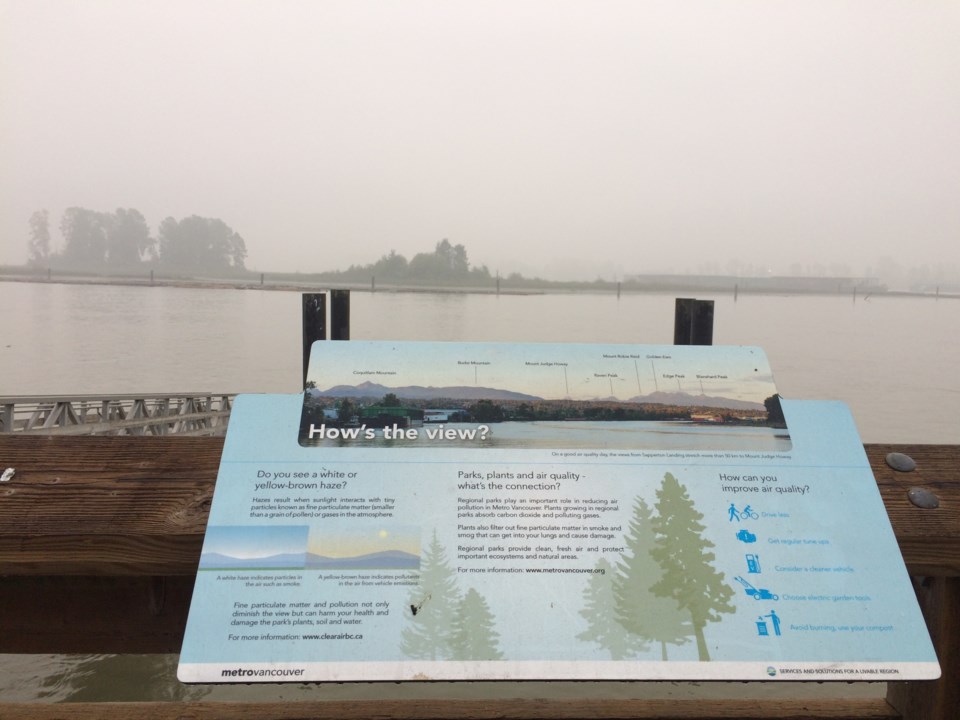A few light sprinkles may have brought what feels like somewhat better air to New Westminster this morning – but don’t open the windows and gulp in the air quite just yet.
The city’s air is still sitting at a 10+ on the health index on the region’s air map, as of 8 a.m. That’s the highest level of health risk.
The entire Metro Vancouver region has been under a continued air quality advisory since Sept. 8 because of wildfire smoke drifting north from Washington and Oregon. Sunday night’s fire at Westminster Pier Park exacerbated the air quality in New Westminster yesterday.
Smoke from both sources continues today, although the fumes from the pier fire have begun to abate. But the city is continuing to warn residents to stay out of the downtown area if possible, to remain inside and close windows and doors.
On the wildfire front, smoke concentrations may continue to vary across the region as winds and wildfire behaviour change, but residents are advised to use caution in the outdoors.
Air exposure is a particular concern for anyone with underlying conditions such as lung or heart disease, chronic obstructive pulmonary disease (including bronchitis and emphysema), as well as asthma or diabetes. Anyone with a respiratory infection, pregnant women, infants, children, outdoor workers and older adults may also be at higher risk.
The region has offered up some tips for reducing your personal health risk:
- Stay cool and drink plenty of water.
- Use symptom management medications, such as inhalers, as needed.
- Continue to manage acute infections or pre-existing chronic medical conditions; if symptoms continue to be bothersome, seek medical attention.
- Stay in cool, air-conditioned environments, especially during afternoon and evening when ozone levels are highest.
- Reduce indoor sources of pollution (such as smoking and vacuuming) and run an air cleaner. Some room air cleaners, such as those with HEPA filters, can help reduce indoor particulate levels.
- Consider taking shelter in air-conditioned buildings that have large indoor volumes and limited entry of outdoor air, but be mindful that space may be limited due to physical distancing guidelines for COVID-19.
- If you are experiencing symptoms such as chest discomfort, shortness of breath, coughing or wheezing, seek prompt medical attention. Call 9-1-1 in the case of an emergency.



